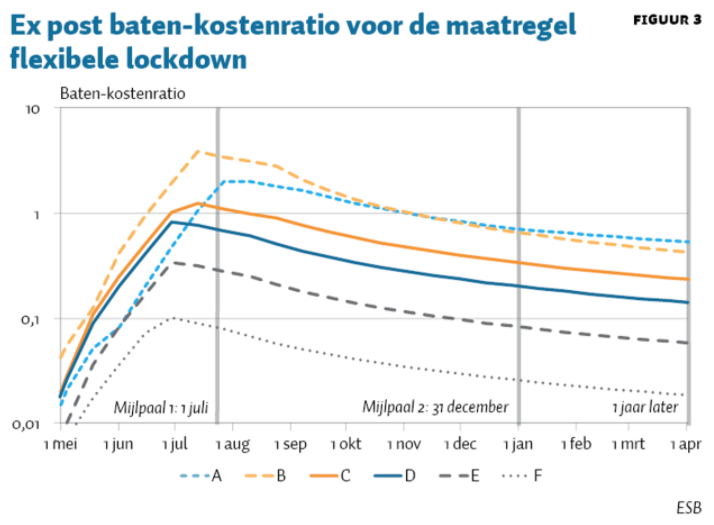TPM researcher Dr Bas Kolen published a cost-benefit analysis of the corona restrictions. “We need to get out of this faster,” he pleads.
Young people should go back to work and study, says Dr Bas Kolen. (Photo: Dalia Madi)
Kolen obtained his doctorate with a dissertation on decision-making in the mass evacuation of the Randstad region in case of flooding. As a disaster management researcher at TPM, when corona turned up, he did some similar modelling. Only in this case, the disaster was not over the period of a few days, but months. He published his findings on 12 November 2020 in the economic magazine ESB (in Dutch) under the title ‘Een eerste kwalitatieve analyse van de Nederlandse coronamaatregelen’ (an initial qualitative analysis of the Dutch corona restrictions).
You have produced a cost-benefit analysis of the corona restrictions. Just to be clear, what are the costs and what are the benefits?
“The costs are the economic recession and the loan that the Dutch Government has extended for support to the population. The benefits are preventing corona victims in terms of life expectancy and avoiding overburdening the healthcare system.”
What is one year of life worth?
“In the end, that weighing up during an emergency is a political decision. I used the numbers that we use in policy-making around healthcare in the model. Healthcare institutions have valued one extra healthy year of life at EUR 80,000. But if you take into account that many people also have illnesses, it’s about half.”

After a while, the costs of the coronameasures grow larger than the benefits. Different scenarios A to F assume different values for the virus’ mortality with 3% in cas A as maximum. (Source ESB)
The cost-benefit ratio first rises, and then just spirals downwards. Can you explain this?
“The benefits initially rise as we manage to save people without enforcing restrictions. This is the reference scenario. The virus then spreads exponentially and could cause 100,000 deaths. All the victims will have died by mid-July and herd immunity will have been reached. The benefits of the restrictions have then reached their maximum as, in relation to the reference scenario, you have prevented everyone who could be a victim from becoming a victim. In the reference scenario the economy could then start up again, but in the corona regime, the restrictions would remain as the virus is not yet gone.”
So from summer onwards the costs will continue but the benefits will have already been reached?
“The bottom line is that you can only save each person once. As long as there are restrictions, the costs will go up.”
As long as the virus is still around you need to find ways to reduce costs without losing the benefits of healthy life expectancy. How can this be done?
“The objective should be that we emerge from this crisis as quickly as possible so that we can limit the duration of the restrictions. What I see is that the elderly and vulnerable and the people who care for them go into a fairly strict lockdown in their own bubble. The other people go back to work, sports etc. Not as freely as it used to be as the infection rate will then skyrocket and overburden the healthcare system. We need to keep the economy going but within certain limitations. There will of course be infections, and care for patients will be needed. But that type of damage should be weighed up against the economic damage of long-term restrictions.”
You propose a dual system in which the elderly and vulnerable are in a stricter lockdown and young people in a less restrictive one. That’s already happening to a certain extent.
“Yes it is, but it is still very free and based on individuals’ actions and this is causing the virus to still spread. The preferred option is to still work from home while I think that we should let the health young people go to university or the office, even if life for them is far from normal. Maybe they’ll be infected, but this will only create herd immunity faster. The death rate in this cohort is really low. My intention is not to lock up the elderly and vulnerable, but to shorten the time that everyone can move about freely again. Actually, the real question is how fast do we want to get out of this? Should we accept that it is going to take a while and should we just wait for a vaccination? That’s certainly one option. But I believe it’s worth thinking about if we can get out of this more quickly and that everyone, regardless of their age, is done with it faster.”
Do you have a question or comment about this article?
j.w.wassink@tudelft.nl

Comments are closed.